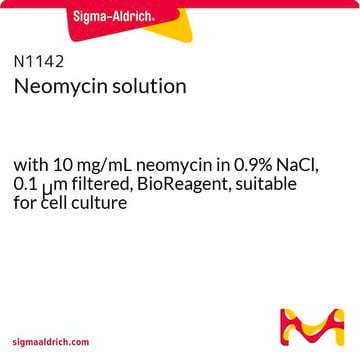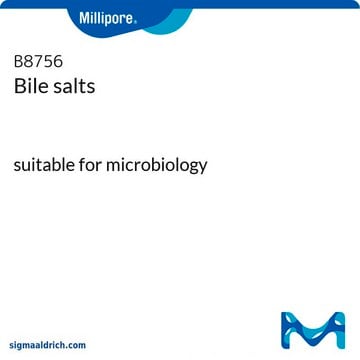P3292
Pancreatina from porcine pancreas
powder, suitable for cell culture, 4 × USP specifications
Sinónimos:
Pancreatina from hog pancreas
About This Item
Productos recomendados
biological source
Porcine pancreas
agency
USP (specifications)
form
powder
specific activity
4 × USP specifications
contains
lactose or sucrose as extender (The sucrose used might contain up to 3.25% starch.)
technique(s)
cell culture | mammalian: suitable
shipped in
ambient
storage temp.
−20°C
¿Está buscando productos similares? Visita Guía de comparación de productos
Application
Biochem/physiol Actions
related product
signalword
Danger
hcodes
Hazard Classifications
Eye Irrit. 2 - Resp. Sens. 1 - Skin Irrit. 2 - Skin Sens. 1 - STOT SE 3
target_organs
Respiratory system
Storage Class
11 - Combustible Solids
wgk_germany
WGK 1
Certificados de análisis (COA)
Busque Certificados de análisis (COA) introduciendo el número de lote del producto. Los números de lote se encuentran en la etiqueta del producto después de las palabras «Lot» o «Batch»
¿Ya tiene este producto?
Encuentre la documentación para los productos que ha comprado recientemente en la Biblioteca de documentos.
Los clientes también vieron
Nuestro equipo de científicos tiene experiencia en todas las áreas de investigación: Ciencias de la vida, Ciencia de los materiales, Síntesis química, Cromatografía, Analítica y muchas otras.
Póngase en contacto con el Servicio técnico












